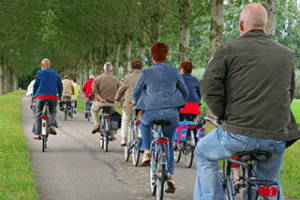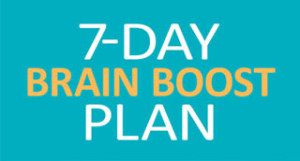News Flash!
‘Even the oldest cyclists had younger people’s levels of balance, reflexes, metabolic health and memory ability.’
Stephen Harridge, Director, Centre of Human and Aerospace Physiological Sciences, King’s College, London.
Professor Harridge’s research team recruited 85 men and 41 women aged between 55 and 79 who were fit and cycle regularly but not competitively. For males to be included in the study they had to have the ability to cycle 100 km in under 6.5 hours while females had to cycle 60 km in under 5.5 hours. Potential participants proved they could do this twice in the 3 weeks prior to testing.
#1 for us: Even the 79-year-olds were healthy and fit.
The researchers wanted to find out:
“What happens to the functioning of our bodies as we get older if we take the best-case scenario [i.e. being fit and healthy].”
The results of physical and cognitive tests showed that the physical functioning of the cyclists remained fairly stable across the decades and was much closer to that of young adults than of people their age. Even the oldest cyclists had younger people’s levels of balance, reflexes, metabolic health and memory ability.
“If you gave this dataset to a clinician and asked him to predict the age of one of the cyclists based on his or her test results it would be impossible. Active older people resemble much younger people physiologically.” Dr Harridge said.
The only changes noted were that the oldest cyclists had less muscular mass, power and overall aerobic capacities than those in their 50s and early 60s. Even so, the measures of the older cyclists were higher than average for people in the general population (not in this study) aged 70 or above.
“Being physically active makes your body function on the inside more like a young person’s.”
#2 for us: HOW you age is everything!
Physical decline with advancing years is NOT inevitable.
Professor Harridge’s results show that fit older people age differently.
Not a cyclist but want to stay healthy?
Keep these three guidelines in mind:
- Set a realistic, regular exercise schedule that you know you will work for you. E.g. Walking 20 minutes 4 times a week, or water aerobics. Fit in with your most alert times.
- Plan to overcome the practical obstacles: pack your bag the night before, work out transport if you are going to the gym, coordinate times with a friend or walking group, set up routines so the exercise habit is formed …
- Choose an activity that makes you feel happy and confident (not clumsy and grumpy!)
Need help setting up your daily routines?
Get your copy of 7-Day Brain Boost Plan
More articles: Exercise and your memory? and Move it or Lose it!




